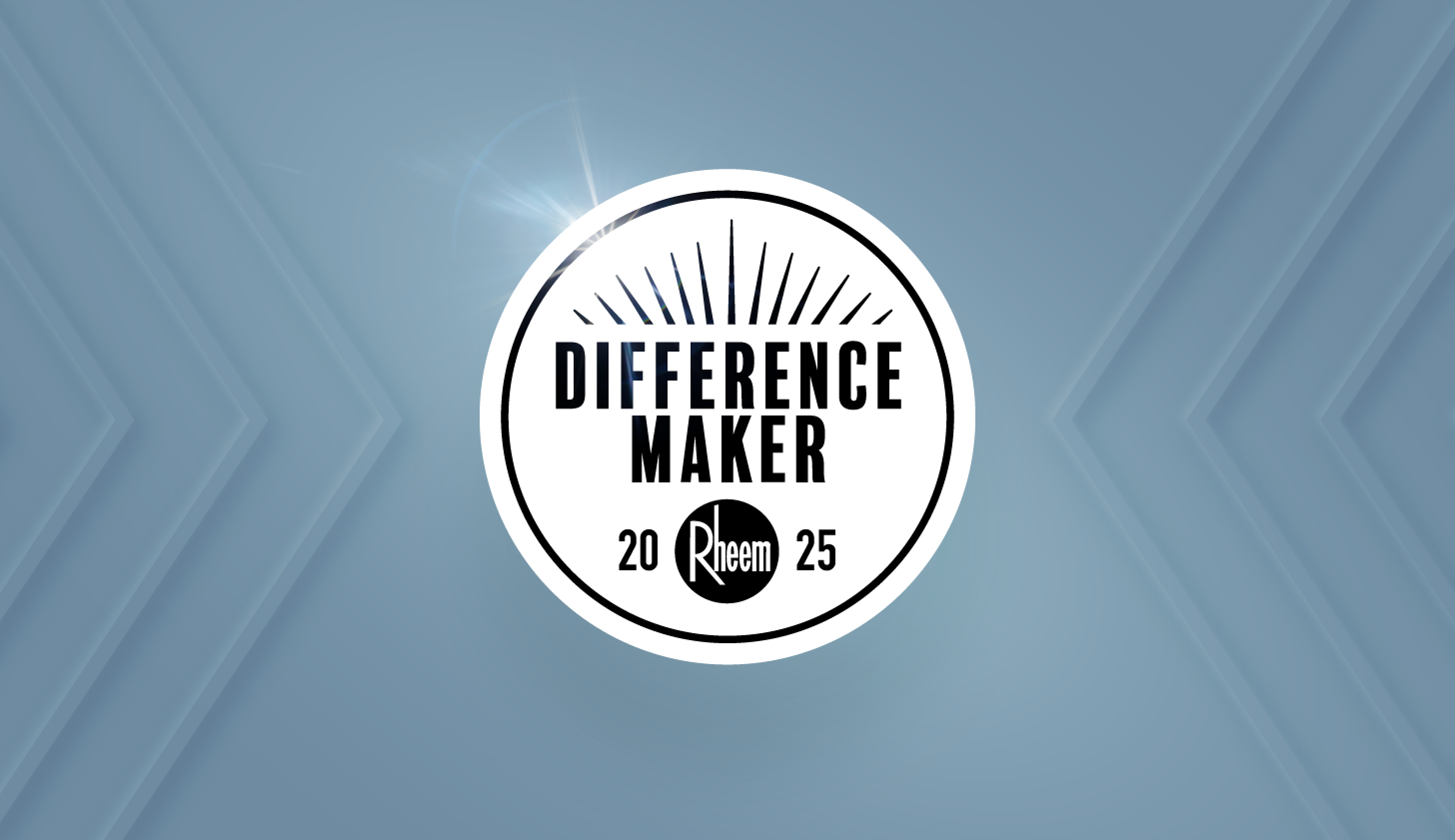How to Improve Indoor Air Quality at Home
August 21, 2024
Indoor air quality expert Taylor Feigel shares strategies for how to improve indoor air quality and maintain a healthy home.


Did you know that indoor levels of air pollutants can be two to five times higher than outdoor levels? In extreme cases, that number can jump to 100 times higher, according to the Environmental Protection Agency. When you factor in that 90% of our time is spent indoors, paying attention to the quality of the air in our homes is essential to maintaining the health of our families.
So, what can you do to improve the indoor air quality (IAQ) in your home? Taylor Feigel, Product Manager of Residential IAQ and Connected Products at Rheem, explains.
To start, why is it so important to be aware of your home’s indoor air quality?
Indoor air quality is a broad term that encompasses quite a few aspects of comfort and health in your home, including the temperature and humidity. On average, 90% of our time is spent indoors (EPA), so outside of our schools and offices, home is likely where we spend that time.
Allergies, asthma, and other respiratory issues are more likely to be triggered and potentially worsen over time by ignoring air quality in our homes. Being aware of your indoor air quality allows you to take action to protect your loved ones and even the physical house itself. Healthy humidity levels in your home can also help prevent mold from developing and decrease the chances of wood warping.
What factors contribute to indoor air having a higher level of pollutants than outdoor air?
Most activities you do have some impact on the particles inside your home. Cooking and cleaning release volatile organic compounds (VOCs) into your space, long baths increase humidity in your bathrooms, and every pet snuggle likely introduces hair and dander.
Generally, newer construction homes are built tighter so there are fewer unexpected air flow leaks to and from the outdoors, which is great for our heating and cooling bills! However, if homeowners aren’t educated to ventilate and circulate fresh air, the pollutants, particles, and VOCs that are brought into your home remain in your primary breathing space.
What are actionable steps homeowners can take to improve indoor air quality at home?
Outside of replacing your HVAC filters and maintaining your equipment as recommended, ventilating your space and controlling your humidity levels will make an impact on your home’s air quality. IAQ monitors are also a great option to get better clarity on the quality of the air in your breathing space.
Schedule your air handler or furnace fan to run during some set times outside of heating or cooling. Running this fan forces circulation in your home, helping to even out temperature inconsistencies and moving air through the filters, making it more likely for particles to be filtered out of your breathing space. It’s also a great idea to run this while you’re cleaning and generating VOCs or kicking up particles! Keep in mind, running your fan will have additional electricity costs and might reintroduce humidity to the space. Find the right balance for your family and home by speaking with your local Rheem Pro Partner®.
Run your bathroom fans to ventilate and dry those spaces while showering or bathing. Allowing humidity to remain high increases the risks of developing mold in your home.
Run your range ventilation while cooking—not just after burning the bacon—to expel those VOCs, and remember to maintain your grease filters.
What should homeowners look for in their HVAC equipment to improve air quality?
As you move up tiers of equipment, it gets easier to manage many of indoor air quality aspects. At a minimum, making sure that your choice of thermostat allows you to schedule fan operation will support filtration of the air in your home. Longer run times that are associated with variable speed equipment have more passes of air through your filters and keep your space at your desired temperature for longer. Filtration and purification options are available regardless of system tier.
If you have problem areas that can’t be managed with your central HVAC system, talk to your local Rheem Pro Partner about treating them instead of masking them!
Learn more about how to improve indoor air quality here.







